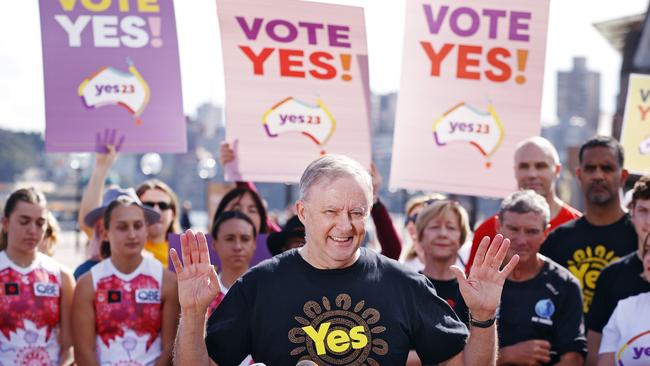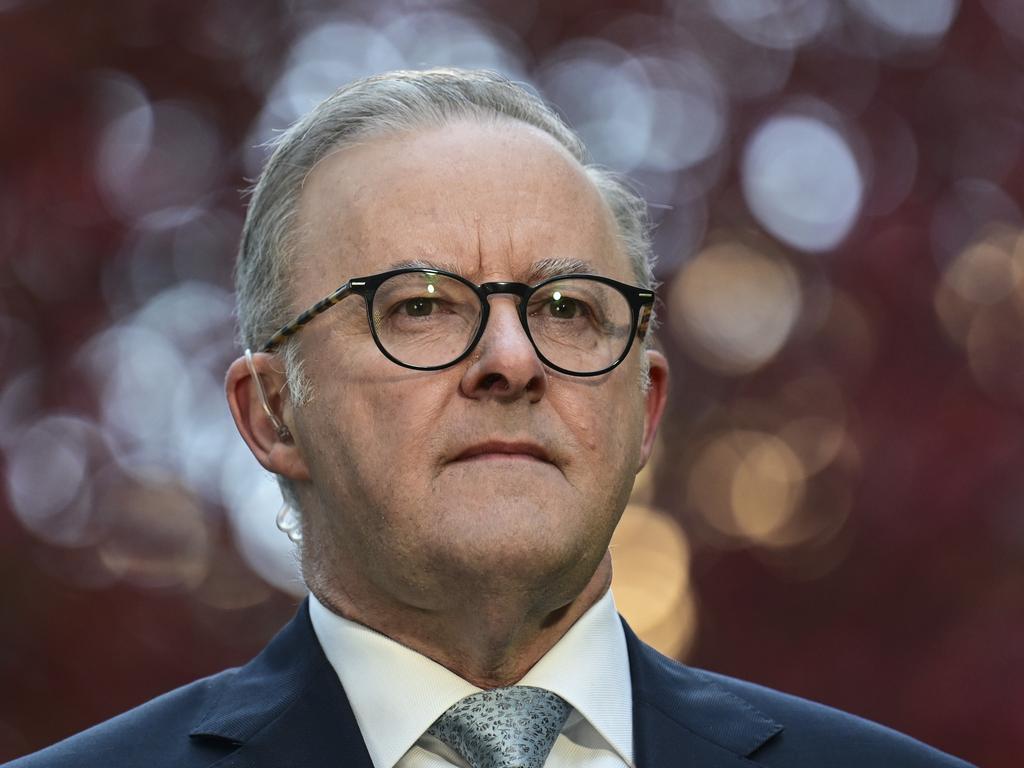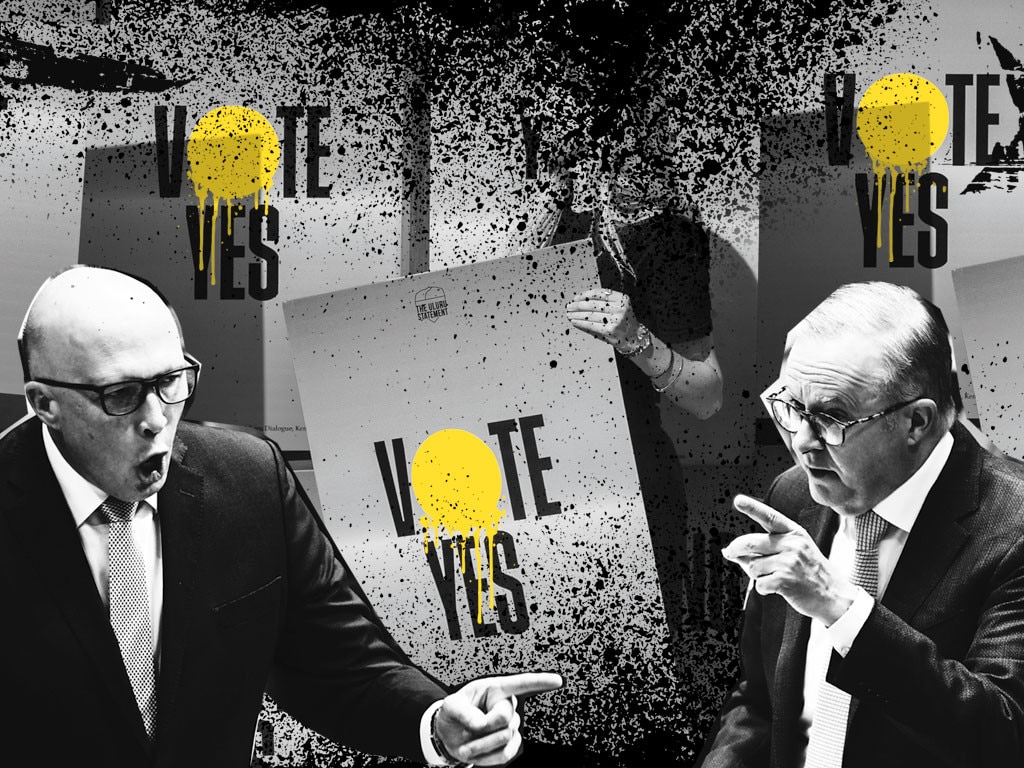
What do you want to achieve in the next five years? asked his host.
“Oh, gee, in five years,” Anthony Albanese pondered, “if you could fix the housing crisis, everyone has the security of a roof over their head, that would be good.”
It is a noble sentiment, except that, like the last Labor prime minister’s promise to halve homelessness by 2020, it prompts the nagging doubt that it will never happen. So, what else?
“I think if we could cure cancer, that would be pretty good,” the PM continued. “If we could fix climate change so that we weren’t dealing with the impact of increased frequency and intensity of natural disasters. All of those things would be pretty good if you could do that in five years.”
As the halfway point in Albanese’s first term approaches, it’s clear that it’s not just the Indigenous voice to parliament he expects to win on the vibe. The vibe is his principal policy driver because this is a vibey sort of government, closely attuned to the sentimental vision that prevails among the elite but seemingly oblivious to the deteriorating economy and its effects on families.
Albanese told Mitchell that Covid-19 brain fog was responsible for his inability to recall the cash rate during an election campaign press conference. It might be a plausible explanation were it not for his striking disinterest in economic policy ever since.
Typically, it was left to Treasurer Jim Chalmers to put a spin on an alarming set of national account numbers released by the Australian Bureau of Statistics last Wednesday. The economy remained “steady and sturdy”, claimed Chalmers. Gross domestic product had grown by 0.4 per cent in the June quarter, slightly ahead of market expectations.
Yet the growth figure was an illusion, just like the budget surplus he declared in May on the back of windfall mining royalties. The figure that best reflects the real-world experience of individual Australians is the change in GDP per capita, which has fallen for two quarters in a row. The national accounts are in positive territory only because of record immigration. The economy is shuddering to a halt.
Labour productivity fell in the year’s first half at a record rate. Australians have to work extra hours to maintain their incomes and are digging into their savings. The hope that next year will be better than this one is receding after three years in which real wages have fallen.
The deficit of hope and the decline in aspiration is not something we can quickly glean from official statistics. But it is felt on the ground by politicians sensitive to the public mood. No one who ventures more than 10km beyond our capital cities’ CBDs and listens to the unscripted conversations of people in the street could make the Treasurer’s mistake of describing the economy as “sturdy and steady”.
The gap the Prime Minister must close right now is between the things that matter to the intellectual wing of the Labor Party and those that matter to the rest of the country. It is the gap between the patrons at the Breakfast Club cafe in Marrickville, who were happily paying $18 for mashed avocado toast on the weekend, and the North Queensland farmer hit by the cost of labour and diesel who was giving avocados away to perfect strangers in Ravenshoe on Saturday.
“Is there enough hope for kids these days?” Mitchell asked Albanese. “And how do you give them hope?”
“Well,” the PM replied, “it’s one of the things the voice is about.”
Mitchell asked the question for a second time.
“The good news is that action on climate change to reduce emissions will grow the economy,” replied the PM.
Having started the hole, Albanese kept digging. Nuclear energy was too expensive, but Australia, uniquely, had abundant renewables, he claimed.
“Green hydrogen has the potential to drive advanced manufacturing in this country to provide us with an unbelievably positive future. And my vision is for cleaner, cheaper energy.”
An hour-long podcast conversation is a relatively novel experience for a sitting prime minister. It was an invitation to the 32.6 per cent of voters who cast their first preference for Labor to get to know the PM a little better and Albanese’s opportunity to gain the trust of the 67.4 per cent who did not. Yet Albanese unplugged turned out to be a leader lacking intellectual depth of conviction, a figure scarred by his socialist youth who thinks a state-owned bank might not be a bad idea, that Labor’s mission is to fix inequality and for whom the cost-of-living pressures on Australians are barely worth mentioning.
The days when the PM can get away with blaming others for his troubles are numbered. The window when he could blame Vladimir Putin for energy prices or Woolworths for inflation, as he tried to do in an FM radio interview recently, is closing. His contrivance of blaming his Transport Minister for blocking extra slots for Qatar Airlines has backfired.
The media may have granted him a 16-month honeymoon, unlike Scott Morrison’s, which lasted approximately 16 minutes. Nevertheless, he must start learning that just as the buck stops at the president’s desk, prime ministers in Australia actually do have to hold the hose.
Nick Cater is Senior Fellow at Menzies Research Centre.






The Prime Minister wants to serve for at least two terms because there are things he wants to do, he told Neil Mitchell in a podcast conversation last month.